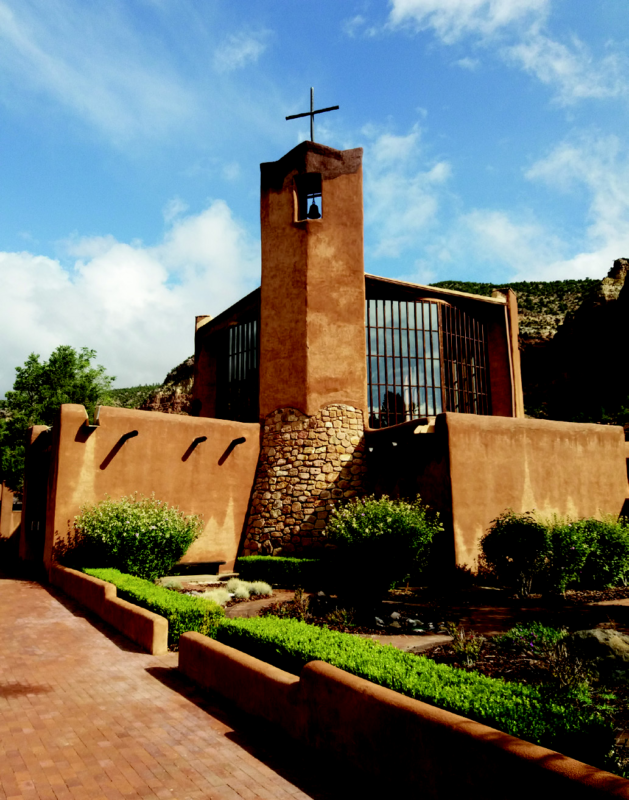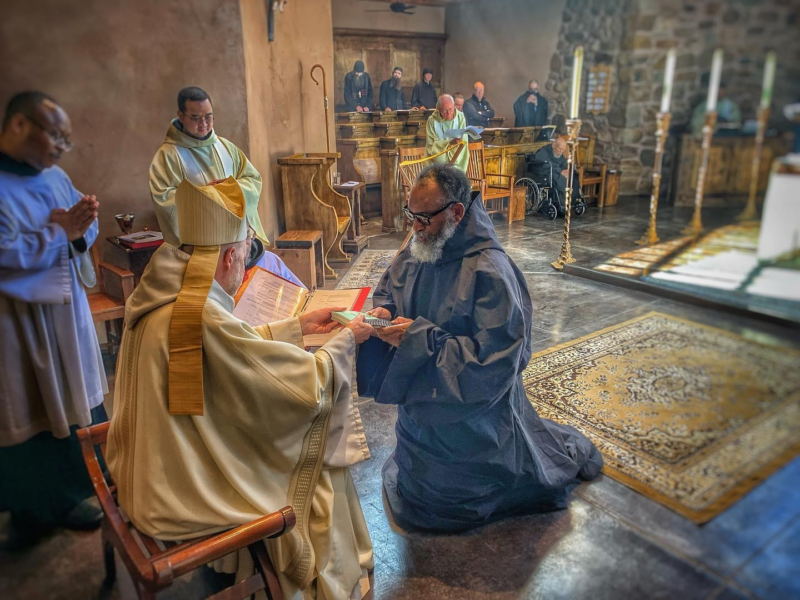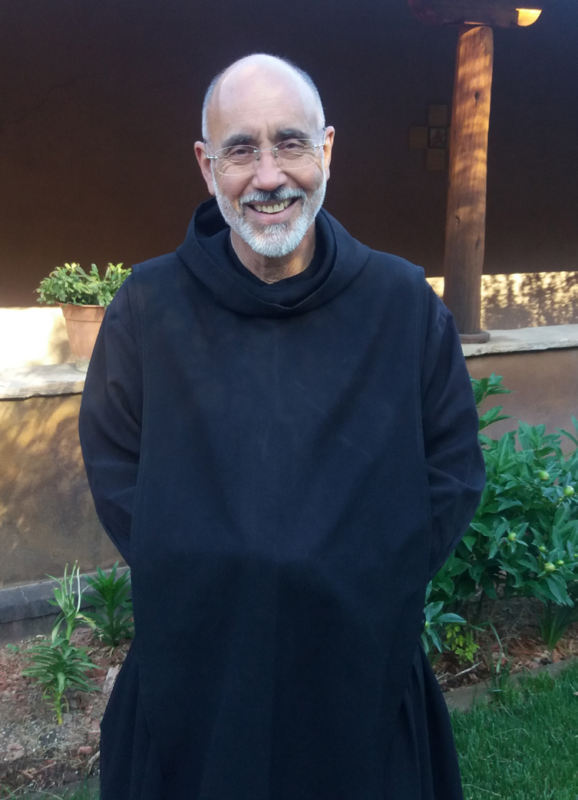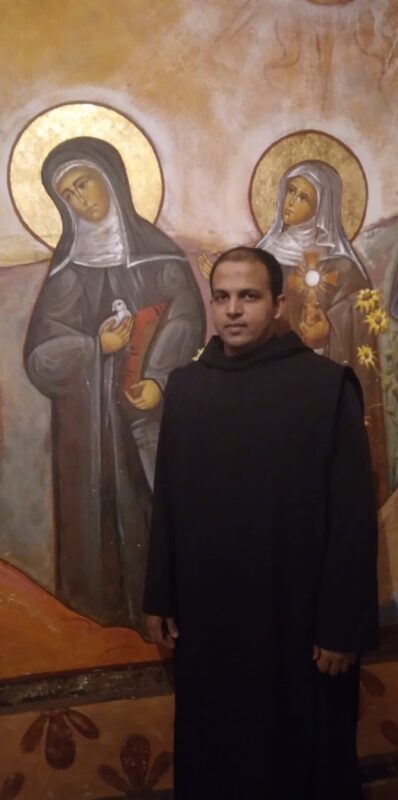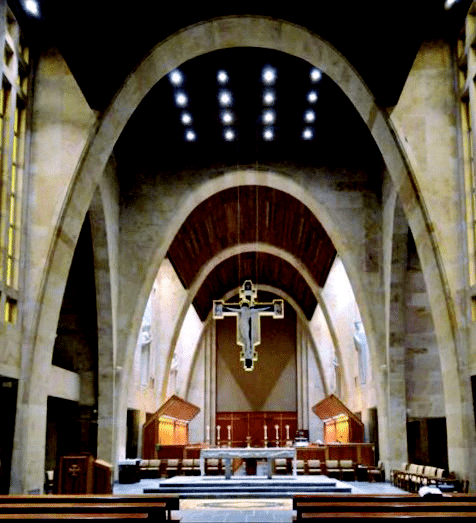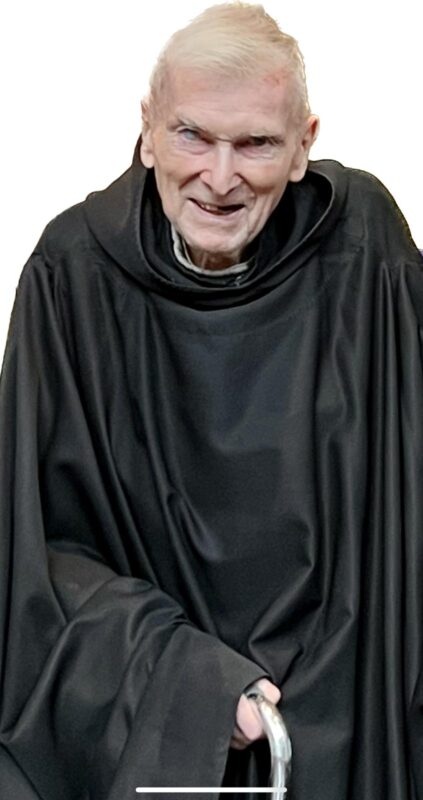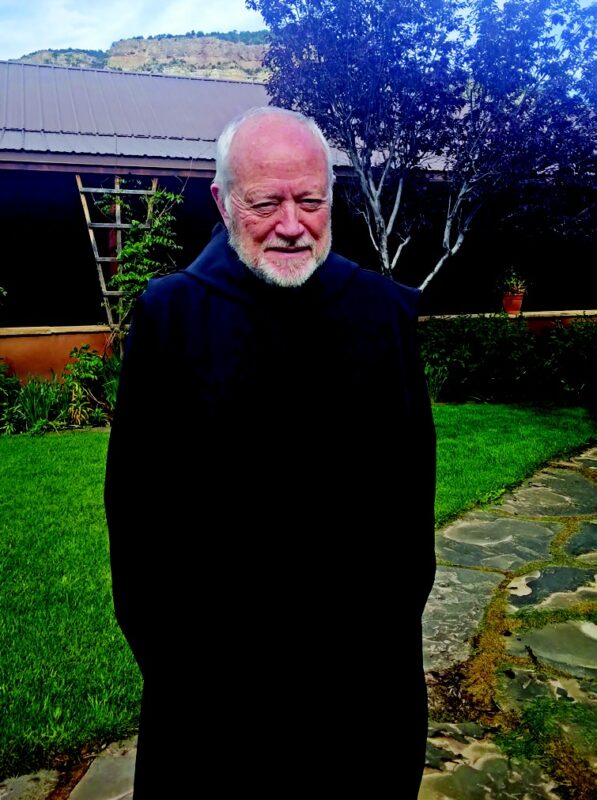Vocations
A talented UK-based band, called “Sadie and the Hotheads,” comprised of not so-young musicians, released the single, “Everybody’s Got a Song (To Sing)” in 2014. The song’s fairly simple tune and message is that everyone has a story, analogous to a song, to sing about in some fashion or other, and no one is excluded from that reality. In other words, everyone, young and old and in between, has a story, a vocation
Vocation, the theme of this Summer Newsletter, comes from the Latin word vocatio, literally, “a calling” or “being called.” In ages past, the word “vocation” was often and even exclusively thought of by Catholics as the call to priesthood or religious life. He or she “has a vocation,” we used to say.
Priesthood and religious life are indeed “vocations,” that is, calls from God, but all people, we believe, have a call from God. I say this because if we believe in a personal God, then we must also believe that God cares for each of us, has called us unto being, and personally invites everyone to a relationship and specific way of life. The Old Testament Book of Deuteronomy says it well: “You are called by the name of the Lord” (chapter 28, verse 10).
It may not always be evident or easy to discern or discover precisely the call of God for our personal lives, but the choices we make, when they are moral, legal, free and genuine, shape the response to what God is calling us to, whether it be in the single state of life, the married state, the religious life or priesthood.
Clearly too we can say that one’s vocation may change over the course of one’s life, for various and sundry reasons. And there is no cause for shame in that. As times marches on, realities occur that demand a change of direction or commitment, and that is part of the beauty of God’s call, and it can often lead us to places we never thought we would go! Being open and at the same time committed are important operative words.
Looking at Sacred Scripture, the Bible, for clues about God’s call and one’s vocation, there are a number of references. One of my favorites is what God tells the prophet Jeremiah, words that are applicable to each of us as well: “Before I formed you in the womb I knew you, before you were born I dedicated you” (Jeremiah 1:5). God may not be calling us to be prophets on the scale of a Jeremiah, but God has known us for eternity and has not abandoned us.
Another prophet, Isaiah, heard this from the Lord: “I have called you by name. You are mine” (Isaiah 43:1). Again, this is a clear “vocation,” intended for God’s people in ages past, but they are words intended for us as well. No one is excluded from the love of God and the call of God to greatness. And greatness comes not by the number of cars we own or the size of our bank account, but in knowing, loving and serving God and neighbor, every day of our life.
The final Scripture quote I have is from the Book of Psalms, often called the “Prayer Book of Jews and Christians” and certainly the prayer book of monks. We monks chant the entire 150 Psalms each week in choir, and the words are very familiar to us, sometimes so much so that they glide right over us, and we don’t concentrate on their full meaning. Nevertheless, here is a phrase that is dear to me and hopefully of help in this little reflection on the topic of vocation. “Commit your life to the Lord, trust in him and he will act” (Psalm 37:5).
While the call from God is first of all God’s, especially since it was made even before we were born, God awaits our reply by a life on fie for the things of God, which again boils down to how we love God and neighbor.
As you read the pieces contained in this Newsletter, I hope the question of your personal call from God, your vocation, will come to mind. How best to cultivate and make the most of one’s call? What do I need to change and how to do it best might also be worth pondering, keeping in mind that God continues to walk with us, even when we stray, and is calling us in our vocation, always and everywhere.
Our founder and first Prior, Father Aelred Wall (who lived from 1917-1984), wrote a piece in 1970, six years after founding Christ in the Desert, called “The Monk’s Vocation.” It is worth quoting in part here, words from over half a century ago, which still ring true.
“Today the witness of the life of contemplation is more than ever necessary, not as a luxury for a few but as a point of hope for all. For the contemplative shares the world’s sorrows, is part of its destiny. His prayer, his work, his simplicity of life, are for the sake of all, affirming the following of Christ in the desert, on the mountainside alone. It is not a life for everyone. There are other vocations, other responsibilities: wounds to be healed, wars to be ended, cities to be made fit for men’s habitation. But the contemplative speaks from his silence of a dimension the world forgets. We must learn to listen.”
Abbot Christian Leisy, OSB
Profession of Solemn Vows: Brother Chrysostom
On Saturday, March 25th, the Solemnity of the Annunciation of the Lord, our Brother Chrysostom pronounced his solemn vows of obedience, stability and conversion of life, as a monk of Christ in the Desert. This he did during Mass in our church in the presence of Abbot Christian and the monks of this monastery. He also received the Solemn Consecration of a monk.
Some sixty relatives and friends of Brother Chrysostom and the monastery joined us for the profession Mass and afterwards enjoyed a festive and delicious meal, catered by “Whole Hog Caterers” of Santa Fe. The meal was accompanied by lively exchange and even a singalong!
Hailing from Chicago, Brother Chrysostom has found his permanent niche in the midst of desert beauty as a contemplative monk in the Chama Canyon wilderness. He serves our community in a number of capacities, including as Guestmaster and Director of Development.
Ad multos annos, Frater Chrysostom
Renewal of Vows Temporary Vows: Father Zachary
On March 20th this year, in the presence of Abbot Christian and the monastic community of Christ in the Desert, our Father Zachary renewed his temporary vows for another year. Father Zachary is our Kitchen Manager, coordinating menus and purchases, as well as regularly cooking fie meals.
Father Zachary is also the coordinator of care for our elderly brethren, especially Father Bernard, who is now almost ninety-two years old, and who needs round-the-clock care. And if that were not enough(!), Father Zachary is a fine homilist and is a member of the “schola,” that is, the group of monks who lead us in the chanting at daily Mass. He helps us “sing the Mass,” not merely, “sing at Mass.”
Ad multos annos, Pater Zachary
Renewal of Vows Temporary Vows: Father Seraphim
On the evening of February 9th, our Father Seraphim renewed for one year his temporary monastic vows of obedience, stability and conversion of life. He did this in the presence of the Abbot and community of Christ in the Desert.
Father Seraphim is our main organist at the daily Conventual Mass and Divine Offie, as well as principal horse wrangler (at present we have four horses for pleasure riding and work). In addition, Father Seraphim makes fine soaps, lotions, lip balm, candles, cologne and perfume, products that we sell in our Giftshop here at the monastery.
Like Father Seraphim, a number of our monks wear several hats, which greatly helps in keeping the monastery running (at least relatively!) smoothly. The varied work assignments, both indoor and outdoor, seem to suit most individuals well.
The Feast of Saint Scholastica, the sister of Saint Benedict, is February 10th, which coincides with the date of Father Seraphim’s fist profession of vows in 2020.
Ad multos annos, Pater Seraphim.
Abbots’ Meeting
From February 3rd to 6th, Abbot Christian attended the annual meeting of North American Benedictine abbots, held this year at Saint Bernard Abbey, Cullman, Alabama. There were twenty-fie abbots present, coming from the United States, Mexico and Canada.
The topic of the two full days of lectures was “The Care of the Sick,” which is a special concern of Saint Benedict in his Rule for Monasteries, being the subject of chapter 36 of the Holy Rule.
At the same time the abbots met, about forty North American Benedictine Prioresses from the USA, Canada and Mexico gathered at Sacred Heart Monastery, a couple of miles from Saint Bernard Abbey.
The joint lectures, attended by abbots and prioresses on Saturday and Sunday and held at Saint Bernard Abbey, were given on Saturday by Br John Mark Falkenhain, OSB, of Saint Meinrad Archabbey in Indiana. He spoke on the topic of understanding mental health concerns and the discernment of candidates.
On Sunday the lectures were given by a panel from Mount Saint Scholastica Monastery, Atchison, Kansas, and consisted of Prioress Esther Fangman, OSB, and two health care providers from Saint Scholastica’s, Renee Porter and Stacey Handke. They spoke on the various needs and challenges of caring for elder members in our monasteries, including dementia, the dying process and the covid crisis.
All the abbots and prioresses attended Mass at Saint Bernard Abbey on Saturday and Sunday, and had some meals in common. On Sunday evening all attended Vespers and supper at Sacred Heart Monastery
In addition to the valuable lectures given, the opportunity to exchange ideas and experiences with other leaders of Benedictine monasteries was a positive addition to the meeting in Alabama.
Short Fiction
THE VOCATION OF BROTHER CUPERTINO
By Brother Chrysostom
The sound of the bell shattered the silence of Brother Cupertino’s cell. As a novice monk he learned that the bell was vox Dei, the voice of God. It was cold in the early morning. He slowly stirred under his wool blanket and bed sheets. His eyes remained closed, but his ears were open, full of the thudding of the clapper against the sound bow. The creaking of the wheel and headstock created by Brother Anthony’s less than smooth pulling of the rope through the ground pulley reverberated within the stonewalls.
Get up now, immediately, or you will miss Vigils, Brother Cupertino thought. He had arrived after the end of the opening antiphon for Vigils each morning this week. He would enter the church, bow quickly, not entirely reverently, before proceeding with haste to his choir stall. He would scramble for his psalter and join the chanting choir on his side in the third or fourth couplet of Psalm 3. The bowed head—usually bent at a seemingly uncomfortable angle—of his junior master, Fr. Pio, in the opposite choir on the other side of the altar, would rise when Father Pio fially looked up from his psalter. A stern glance from him dependably elicited a despairing sigh from Brother Cupertino.
This is such an easy commute, he thought. It was so different from the 30-minute bus ride to the Dan Ryan L-train that would take him to the mall at 87th Street for his job at Home Depot. He did not have to rise as early, but he had to travel farther, through snow and rain sometimes. Did he prefer that slog to the 50-yard distance his sandaled feet walked to Vigils to arrive on time?
The bell sounded again after a brief reprieve. Brother Cupertino now sat up in bed. He rubbed his head. He swiveled in bed and found his sandals in the same placehe left them last night. His bare feet avoided the cold stone flor. In the dark he found the light switch to a lamp, this time without knocking it over in the dark. Shirley always thought he was clumsy, even before he tripped over a box of 3-way light bulbs in the lighting section her section of Home Depot, to announce that he was entering a monastery. He missed her smile and her goofy laugh sometimes. He wondered if she missed him. They could have been sweethearts over time, he thought
Brother Cupertino made up his bed and walked to the opposite wall of his cell. His belt, scapular, and tunic hung on a hook. He bunched the tunic up and slipped it over his head. The tunic unfurled over his t-shirt and short pants like a protective tarp. Next he reached for his leather belt and fastened it around his waist. The scapular was last. He pushed his French-crop hair through the opening and reached behind his back to pull down the point of his hood. Even in his full tunic he was feeling a bit cold. Whatever happened to his favorite crew cut sweaters, he pondered. Where are those comfortable Timberland boots he used to own that used to keep his feet so warm in winter?
He tousled his blonde hair with his fingers. If he took the time to actually comb his hair, he would risk being late again for Vigils. He winced at the thought of another kneeling in the middle of the community of monks in the Chapter room that evening. He could hear himself repeat the same fault, “Mea culpa. I came late to Vigils this morning.”
A third bell, this time in the church bell tower, indicated to him that if he did not exit his cell soon he was going to be late. Before the monastery, he had found it easier to rise from bed, especially knowing that he could buy a breakfast special ($1.99!) at the Market House near his bus stop before the 79th Street bus rolled up. Those eggs over easy, sausage, toast, and hash browns had a special allure. His belly rumbled. He had not eaten since early evening yesterday.
A swish of Listerine would suffice until he returned to his cell to brush his teeth properly. He passed swiftly through his door and saw in the corridor the backs of some of the older monks as they slowly made their way to Vigils. Some bent over their canes as they processed down the corridors to the church. Others were being wheeled in wheelchairs to their places. Brother Cupertino remembered the joy of his brisk morning walks to the bus stop in the Chicago spring and fall. The morning air would awaken him and lift his spirit.
Brother Cupertino arrived at the threshold of the church behind the Tabernacle. More than fifty monks were in their stalls, some standing, others sitting or kneeling. The silence was affirming to him. It welcomed him and embraced him. A bean gravy stain on his scapular caught his eye in the bright lights of the church. He dry-washed it out by doubling the scapular in the spot of the stain and rubbing furiously. His tunic was special to him. It was a uniform of sorts. Years ago he favored another uniform when he thought his vocation was football. In a flash his mind pivoted to the Chicago Bears. For a moment he could empathize with the emotional, almost spiritual, event of Walter Payton’s last football game in Soldiers Field. Reporters in the locker room watched awestruck as Payton began taking off that “34” uniform, almost ceremoniously.
Despite all that Brother Cupertino missed from his former life, he felt comfortable in choir before dawn. This was his Soldier Field. The hint of sleep deprivation did not deflate his spirits. He slid into his pew and opened his psalter to the day’s psalms. As his thighs and back rested on the back of the choir stall, and just before he was about to rest his forearms on the jutting sides, the cantor in a soft and clear voice sang: O Lord, open my lips / And my mouth shall proclaim your praise. Brother Cupertino smiled broadly. He made it on time today.
DOM LEANDER HOGG, O.S.B. 1926 ~ 2023
Our beloved Brother Leander Hogg peacefully passed from this life to the next on Tuesday night, March 28th. He died in his cell in our Infirmary and had been surrounded by monks, oblates and friends, praying at his bedside around the clock over the past several days. Brother Leander was 96 years old at the time of his death.
His Requiem Mass in our church and burial in our cemetery took place beginning at 11:00 am March 29th.
Born in England, George Hogg, as he was known “in the world,” served in the British military during World War II and later joined the Irish Christian Brothers. Later, he became a Benedictine, and spent time in monasteries in the United States, Peru, Costa Rica and Mexico.
Brother Leander was an excellent and dedicated teacher, who worked tirelessly for decades in the formation of candidates to the monastic life. He was Junior Master (guiding simply professed monks) at Christ in the Desert over many years and right up until his death.
Brother Leander never lost his posh British accent (“why should I?,” he would wryly ask), and was an exemplary and faithful servant of Christ. He was never late or missed the Divine Office or Mass, and was often pointed out as a model to monks many decades his junior, who might be late or absent from community prayer with no compelling reason. He would freely point out to such brothers the nature of their commitment and obligations, never alienating in doing so, but spot-on in his observations.
May the angels lead Brother Leander into Paradise and may perpetual light shine upon him. Please pray for that intention.
MONK’S CORNER
What is your name? Father Jeffrey Steele
How long have you been a Benedictine monk? I have been a monk for twenty-fie years. I have served as the full time Chaplain for the Monastery of Our Lady of the Desert in Blanco, New Mexico, as well as at St. Benedict Abbey, Subiaco Mission in Polokwane, South Africa.
What were some of your challenges as a monk at MCD during your time here? I have the challenge of recollection. I am the inveterate daydreamer. It takes effort to stay focused.
What changes have you witnessed during your time here at MCD? With fewer monks at present, those here now are far busier than I remembered. This has a good side to it.
Who is your favorite saint, and why? I don’t have a favorite saint but a devotion to Our Lady of Fatima
THE OBLATE LIFE: AND THEN THERE WERE NINE
By Dan Schneider
“Wait,” a monk half-asked, half-scolded the three of us as we were leaving the monastery after our annual retreat, “you mean you guys aren’t oblates?” Incredulous, he handed fliers on the oblate life to the three of us before sending us on our way with, “Pray about it.” Although Greg, Gus and I had been going to Christ in the Desert for years, we never thought about becoming Benedictine Oblates. On the long drive back to Las Cruces, we asked ourselves the same question, namely, why not?
Sometimes vocation is as simple as someone bold enough to ask.
Before long, we returned to the monastery, anxious to begin our year of discernment, with final promises a year later. Then-Prior Christian gave us a copy of G.A. Simon’s Commentary for Benedictine Oblates. We learned that an oblate is not like a tertiary of other orders. We connect to the universal Church not just through the Order of St. Benedict, but through this monastery, a place that already feels like our home away from home.
We soon added a new oblate, then another. We have since grown to nine, all beginning with a simple invitation to another who seems to be seeking holiness and a connection to the larger Church. Together, we have learned to pray the Opus Dei, practice lectio divina, and glean ancient truths for the modern day from the wisdom of Holy Father Benedict. We meet monthly in our parish hall, beginning with Terce, before going through the Rule and Simon’s commentary, noting timeless applications of it for oblates in the world. We end each meeting in the main church with the rosary (in Latin these days, thanks to the prompting of two new oblates) and silent prayer. When the bells ring at the noon hour, we pray the Angelus, then finish with the Marian hymn of the season.
The call to the oblate life, in the end, is a call to conversion and, when done correctly, imbues each of our vocations with the wisdom of centuries of Benedictine monasticism. We continue to ask ourselves, in the words of St. Benedict: Amice,ad quid venisti? (RB 60).

